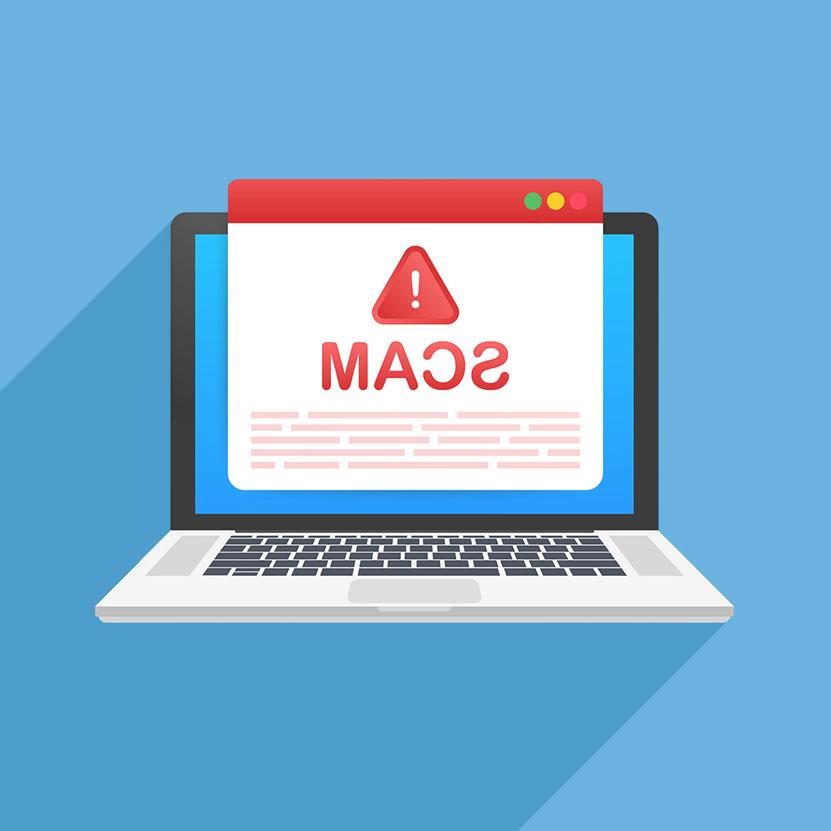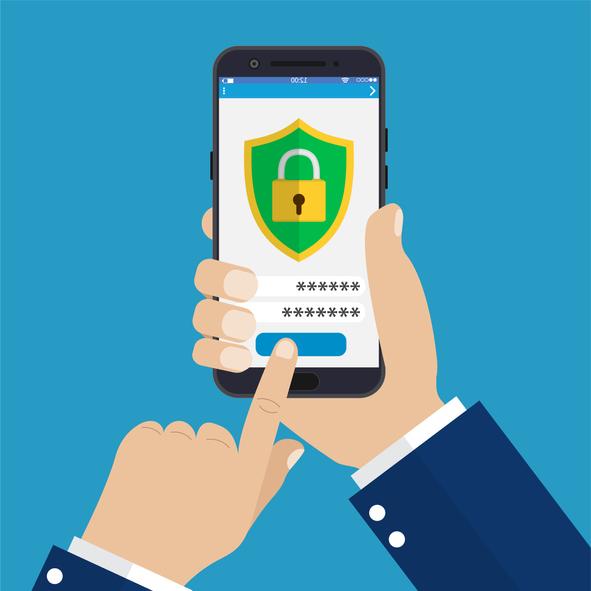欺诈 & 诈骗
请注意,FLCBank绝不会打电话要求您提供个人信息, such as your Social 安全 number, 你的出生日期, your 在线 Banking username and password, 您的信用卡/借记卡号码, or the three-digit security code on the back of your credit/debit card.
联邦贸易委员会(FTC)是收集诈骗报告的主要机构. Report your scam online with the FTC complaint assistant, or by phone at 1-877-382-4357 (9:00 AM - 8:00 PM, ET).
参观 Federal Trade Commission Consumer 定期在信息网站了解最近的诈骗以及如何识别警告信号. Read the FTC’s most recent alerts or browse scams by topic.
The FTC also collects reports of 身份盗窃. Report 身份盗窃 online at IdentityTheft.政府 or by phone at 1-877-438-4338 (9:00 AM - 8:00 PM, ET).
Report fake 网站, emails, malware, and other internet scams to the Internet Crime Complaint Center (IC3). Some online scams start outside the United States. If you have been a victim of an international scam, report it through econsumer.政府. 你们的报告帮助国际消费者保护机构发现趋势并防止欺诈.

通知我们欺诈和/或诈骗
通知我们网上欺诈, 身份盗窃, or a scam involving FLCBank or your FLCBank account, 请打电话给 800.318.3159周一至周五上午9:00.m.— 5:00 p.m. (EST)或电邮至 cybersecurity@flcb.com. 请写上你的名字, 电子邮件地址, 电话号码, and a detailed description of the possible fraud or scam.
检查欺诈
No matter the size of your business, you are vulnerable to check fraud.
Check fraud is still a very common scheme affecting business. 欺诈行为ters use counterfeit checks, 被盗支票库存, 改变了检查, 伪造签名, 虚假代言, and other tactics to target business accounts. In some cases, fraudsters intercept mailed checks and alter the payee. FLCBank建议不要通过USPS等常规邮政服务邮寄大额支票. If payment through ACH or other secure debit transactions isn’t an option, then mailing a paper check should be done using a secure, 经认证的保险承运人,如联邦快递或联合包裹,以确认交付到预期的收件人. 如果支票没有及时兑现,最好打电话给预定的收款人确认收到,如果没有收到,就发出停止付款的通知. Check fraud can harm your business by causing cash flow problems, 繁重的调查, and even unreimbursed financial losses, 在某些情况下, the 银行 may not be liable for these occurrences.
Prevent 检查欺诈 With Our Check Positive Pay Service. 了解更多


诈骗短信诈骗
我们收到了客户的报告,他们收到了皇冠正版APP下载他们账户的短信,要求提供个人信息以验证账户或交易. 这个链接是假的. 删除文本,请注意FLCBank也不会打电话或发短信要求您提供个人信息. If the call or text sounds suspicious, please do not respond.
使用FLCBank的名义进行欺诈 & 声誉
FLCBank Executives and Officers Impersonation
我们最近了解到一个骗局,骗子冒充FLCBank的高管(例如, 约翰·阿伯特, 首席财务官), 社交媒体(e).g., Facebook) message or text message, 通知目标受害者,他们需要帮助从外国银行账户转移一笔钱. Prior to the transaction taking place, the impersonator will request an “advance fee” of some type, which is where the loss to the victim takes place. 如果你收到一封电子邮件, text message or social media message of this type, we strongly advise you to delete the message. 您可以通过以下方式与我们正规买球APP下载,以核实来自FLCBank的任何信息的真实性 cybersecurity@flcb.com.
骗子网站
互联网的发展为我们的购物方式带来了许多极其便利的进步, 银行, and interact with the world around us. 同时, 这种演变也带来了新的风险——为犯罪分子创建虚假网站提供了新的途径, fraudulent or a scam to rip off the unsuspecting.
冒名网站的设计看起来是合法的,甚至模仿/克隆企业的品牌外观. The cloned page will use the same images, content and page navigation of business but the logo, 登录屏幕, contact information and URL has changed. 该网站实际上是一个工具,可以泄露用户的个人身份信息或登录凭据,以实现金融欺诈.
Protect Your 个人 Information 在线
Be stingy with your personal information when you’re on the web. When a site asks for your personal information, know that the data you enter could end up in the wrong hands. A web site might look like the real deal, 但很多都是犯罪分子伺机窃取你的金钱和个人信息的幌子.
Research a company before choosing to give it your business. 在在线搜索引擎中输入公司名称和“投诉”一词,看看会出现什么. 花点时间向公司询问有关州或政府许可证的详细信息. 如果公司不能提供信息,或者你在政府机构网站上找不到详细信息, 这可能是一个危险信号.
冠状病毒(COVID-19)骗局
直到今天, 骗子将冠状病毒(COVID-19)视为利用人们的恐惧和脆弱性的机会. 没有理由恐慌, but you should be vigilant and take the appropriate if not additional, precautions to ensure you and your finances remain secure.
Remember: Never provide information such as your Social 安全 number, 银行账号, PayPal账户信息, or anything else that could put your personal information at risk.
We understand people may want to support local businesses and individuals, 然而, 验证组织和个人的合法性以保护您的个人信息和帐户非常重要. Scammers are targeting victims by impersonating charities, 医学专家, 卫生当局.
Here is a list of possible COVID-19 scams:
- 治疗诈骗: 骗子们提供假的治疗方法、疫苗以及未经证实的COVID-19治疗方法的建议.
- 供应诈骗: 骗子正在开设假商店, 网站, 社交媒体账户, 以及声称出售目前需求量很大的医疗用品的电子邮件地址, 比如医用口罩. When consumers attempt to purchase supplies through these channels, fraudsters pocket the money and never provide the promised supplies.
- 提供者诈骗: Scammers are contacting people by phone and email, 假装是为朋友或亲戚治疗过COVID-19的医生和医院工作人员. They are then demanding payment for that treatment.
- 慈善诈骗: 骗子正在为受COVID-19影响的个人、团体和地区募捐.
- 网络钓鱼诈骗: Scammers posing as national and global health authorities, 包括世界卫生组织(WHO)和美国疾病控制与预防中心(CDC), 发送钓鱼邮件是为了诱骗收件人下载恶意软件或提供个人身份和财务信息吗.
- 应用诈骗: 诈骗者正在创建和操纵旨在跟踪COVID-19传播的移动应用程序,以插入恶意软件,损害用户的设备和个人信息.
- 投资诈骗: Scammers are offering online promotions on various platforms, 包括社交媒体, 声称上市公司的产品或服务可以防止, 检测或治愈COVID-19,这些公司的股票将因此大幅升值. These promotions are often styled as “research reports,” make predictions of a specific “target price,,并与小盘股或由公开信息有限的最小公司发行的低价股票有关.
As similar scams are likely to arise in the coming weeks and months, remember to be mindful and protect yourself and your finances. Please share these tips with everyone in your family regardless of their age, especially elderly family members, as they seem to be targeted more often.
Other resources to 了解更多 about 在线 安全, Identity Theft, and 诈骗 & 欺诈行为
访问美国.S. Government Services and Information website to 了解更多.
